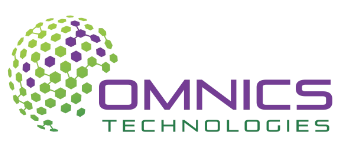Individual Software vs. Standard Software: Key Business Decision
With the increasing digitization, many companies are faced with the question: Should we opt for individual software or standard software? The answer to this question can have a crucial impact on the efficiency, flexibility, and ultimately the success of the company. In this article, find out the advantages of individual software over standard solutions and why tailored software is often the better choice.
Overview of the Advantages of Individual Software
Choosing the right software is a central factor for success for companies. It is a very complex decision that ideally is based on a thorough analysis of the individual requirements and goals of the company. In most cases, we advocate for the introduction of individual software. Why? Learn about the compelling advantages of tailored IT solutions here!
1.Individual Software vs. Standard Software: Flexibility & Agility
Individual software offers maximum flexibility. It is precisely tailored to the specific requirements of the company. In contrast, standard software products are often generic and frequently require adjustments in business processes for optimal use. Meanwhile, individual software can dynamically adapt to changing business requirements: This is crucial, especially in today’s rapidly changing business environment. Individual software is definitely a forward-looking solution as it can scale alongside your company’s growth and adapt to evolving needs.
2.Individual Software vs. Standard Software: Efficiency & Productivity
The efficiency gained from using individual software is remarkable. Custom development can avoid unnecessary features, benefiting both efficiency and user-friendliness. In contrast, standard software products often contain features irrelevant to the company, leading to unnecessary complexity and avoidable training efforts. With individual software, companies can easily automate specific workflows, significantly increasing overall productivity by reducing manual processes. This, in turn, leads to cost savings and a significant competitive advantage.
3. Individual Software vs. Standard Software: Cost Advantages
It is widely believed that individual software is inevitably more expensive than standard software. In fact, quite the opposite is often true. Admittedly, the development costs for individual software are initially higher than the acquisition costs for standard software. However, in the long run, tailored solutions usually turn out to be the significantly cheaper option. Standard software products often incur ongoing license fees, which accumulate over time. Additionally, additional expenses for training and recurring adjustments must be considered. In contrast, individual software entails minimal ongoing costs and allows companies to better control their software budget. Investing in customized software is therefore a long-term and sustainable investment.
4.Individual Software vs. Standard Software: Security & Data Protection
Another prejudice against individual software is that it is less secure than standard software because it does not have a broad user base. We do not share this concern. After all, individual software can consider a company’s specific security requirements and implement security solutions tailored 100% to individual needs. This is particularly advantageous when it comes to sensitive data in the energy and environment sectors. In contrast, standard software must focus on general security standards, which may only partially meet the company’s specific requirements.
Our Conclusion: Individual Software as the Better Solution
When weighing the various arguments for individual software or standard software, in our opinion, individual software clearly emerges as the better recommendation for companies. Its attractiveness is particularly due to its outstanding performance in efficiency, cost control, and security. This benefits especially companies in highly specialized fields such as energy or the environment. In general, choosing the right software enables companies to pave the way for increased productivity and future viability. Those who opt for the “wrong” software will struggle with the increasing challenges of a dynamic business environment. Therefore, when deciding on a software solution, companies should always carefully evaluate their individual requirements and consider the long-term impact on business development.
How about in your company? Which software solution do you prefer, and what advantages do you appreciate about it? We look forward to your comments and a lively exchange in this important discussion!



